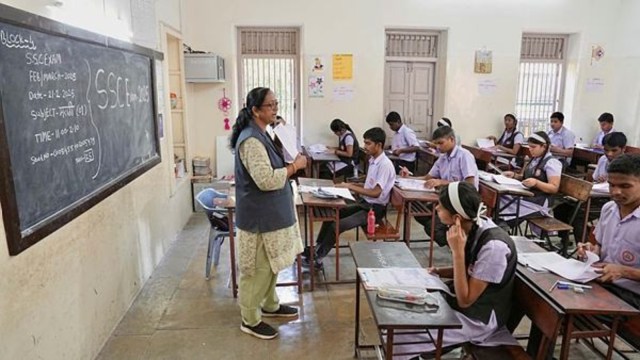
In recent years, education in India has not only expanded in scale but matured in ambition. Our reforms today are about quality, pedagogy, and learning outcomes. We have made a deliberate shift towards ensuring that every child in the country not only attends school but also truly learns. To understand if that is happening, we must pause and ask the right questions. What are our children learning? Are schools enabling them to build essential skills at each stage of their education? These questions require reliable, scientific answers.
As an expert noted, “Students can learn despite poor teaching, but they cannot overcome poor assessment.” This reminder is crucial because the best way to determine the effectiveness of our education system is through large-scale assessments. These analyse macro trends to determine educational effectiveness. They find patterns in data from different locations, subjects, grades, and schools. This form of evaluation helps teachers and policymakers understand the strengths and weaknesses of students. Overall, it helps diagnose systemic issues and buttress policymaking.
Over the past two decades, India has gradually built capacity in this area. Advancing from the National Achievement Surveys (NAS) to PARAKH Rashtriya Sarvekshan (PRS) 2024, the scale of the survey has grown to cover 21.15 lakh students in 74,229 schools across the country. Students from Grades III, VI, and IX were assessed to correspond with the end of the foundational, preparatory, and middle stages of schooling. These stages are now well-established under the new curricular structure in line with the National Education Policy (NEP) 2020.
At the foundational stage, the data show that India has not only recovered from the learning losses of the pandemic but, in many cases, surpassed earlier benchmarks. In Grade III, 57 per cent of children demonstrated proficiency or above in Language, up from 39 per cent in 2021 and 47 per cent in 2017. In Mathematics, the figure has jumped to 65 per cent, compared to 42 per cent in 2021. These gains reflect the serious and sustained efforts made under the NIPUN Bharat Mission, underscoring how targeted support, teacher mentoring, and early-grade interventions are beginning to bear fruit. The data also show that government schools in rural areas have, in some cases, outperformed their urban and private counterparts in foundational grades. This is a significant development, demonstrating what focused, systemic reform can achieve. However, as we move to Grades VI and IX, the picture becomes more complex. Central government schools have performed well overall, but marginal gaps persist by gender and region, particularly in Mathematics and Science. These are areas that need urgent focus.
Many comparisons have been made between PRS 2024 and earlier surveys, which are misplaced and require clarification. The structure of the assessment has changed. Earlier surveys focused on Grades V and VIII, whereas this edition concentrates on Grades VI and IX, aligning with the new curricular stages. Moreover, the shift from textbook learning outcomes to competencies means the assessment tools are fundamentally different. Directly comparing a Grade V outcome from NAS 2021 with a Grade VI outcome from 2024 is methodologically unsound. Only Grade III scores are comparable across all three surveys, and the improvement in these scores is established. Any interpretation that suggests a decline in performance based on comparisons with other grades risks misrepresenting the actual story.
What we now have is not just a report card, but a roadmap. The actual value of the data from the survey lies in how they are used locally. PRS provides district-level insights, and it is now the responsibility of states, districts, and school systems to translate these findings into granular, need-based interventions. Every state and UT will need to study its data — where learning levels are strong, where gaps persist, which support systems are working and which are not. The Centre will continue to provide guidance, frameworks, and resources; however, the real impact will come from what is done at the school and district levels. Our goal is not just to meet national benchmarks, but to achieve international comparability, and we are steadily moving in that direction.
The importance of assessments, however, does not end with school education. We must also focus on how young people transition into the world of work, entrepreneurship, and economic participation. Skills matter as much as academics. That is why, soon, the government will initiate a qualitative, large-scale skills assessment that will help us understand the skill-readiness of our population, map regional variations, and plan targeted interventions in vocational education and skilling. The recent adoption of a data-driven ITI grading system and inclusion of NEET (Not in Education, Employment or Training) in the PLFS exercise is also aimed at providing key inputs for our reform process.
The ambition is to link learning to livelihood, ensuring that every young Indian is not only educated but also employable, entrepreneurial, and equipped to contribute meaningfully to the country’s development.
PRS 2024 is a powerful reflection of how far we have come. But it is also a signal of what lies ahead. As we build stronger foundations in school education and expand the horizon of skill development, we remain committed to a system that is inclusive, evidence-driven, and future ready.
The writer is Union Minister of State (Independent Charge) for Skill Development and Entrepreneurship, and Minister of State for Education, Government of India